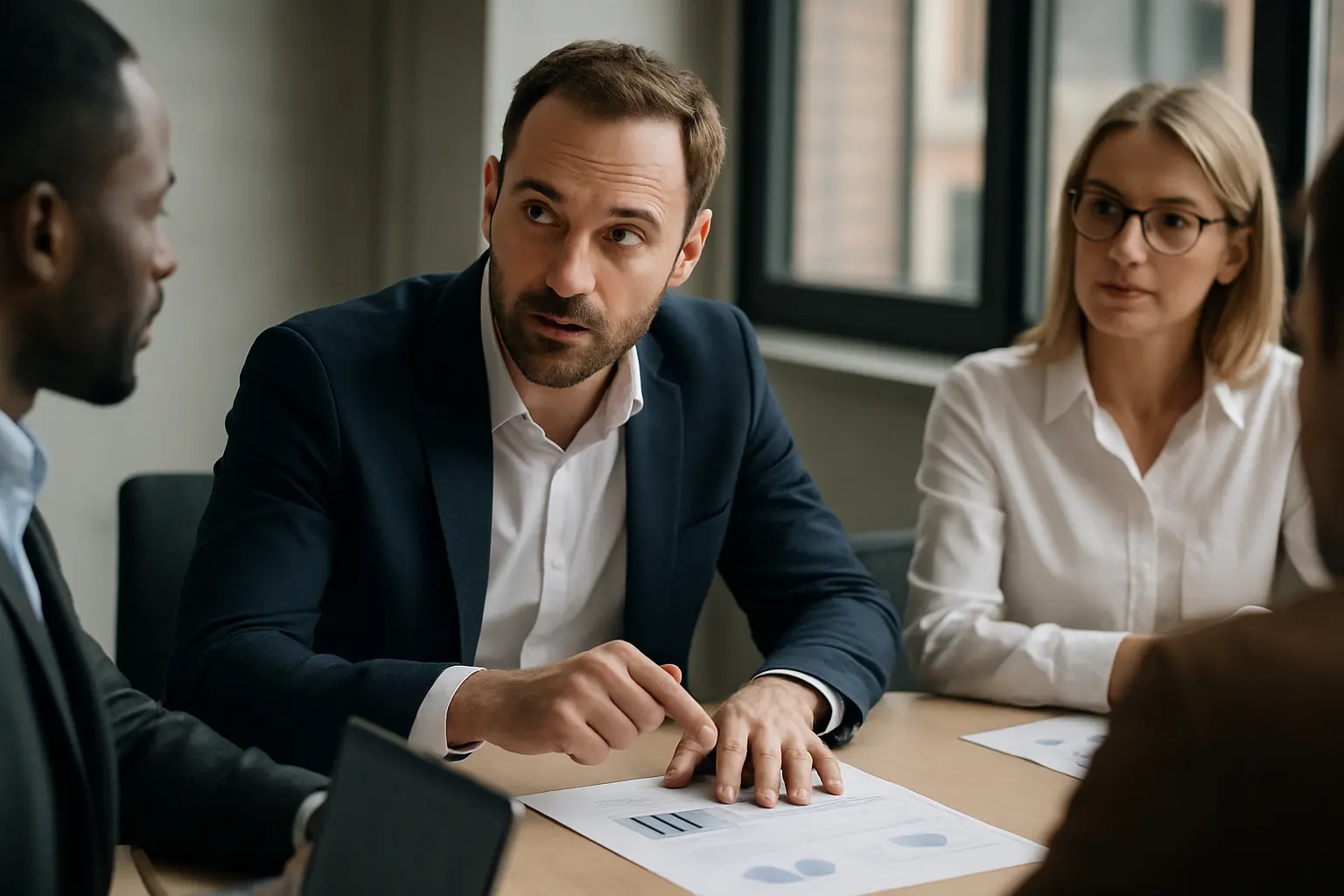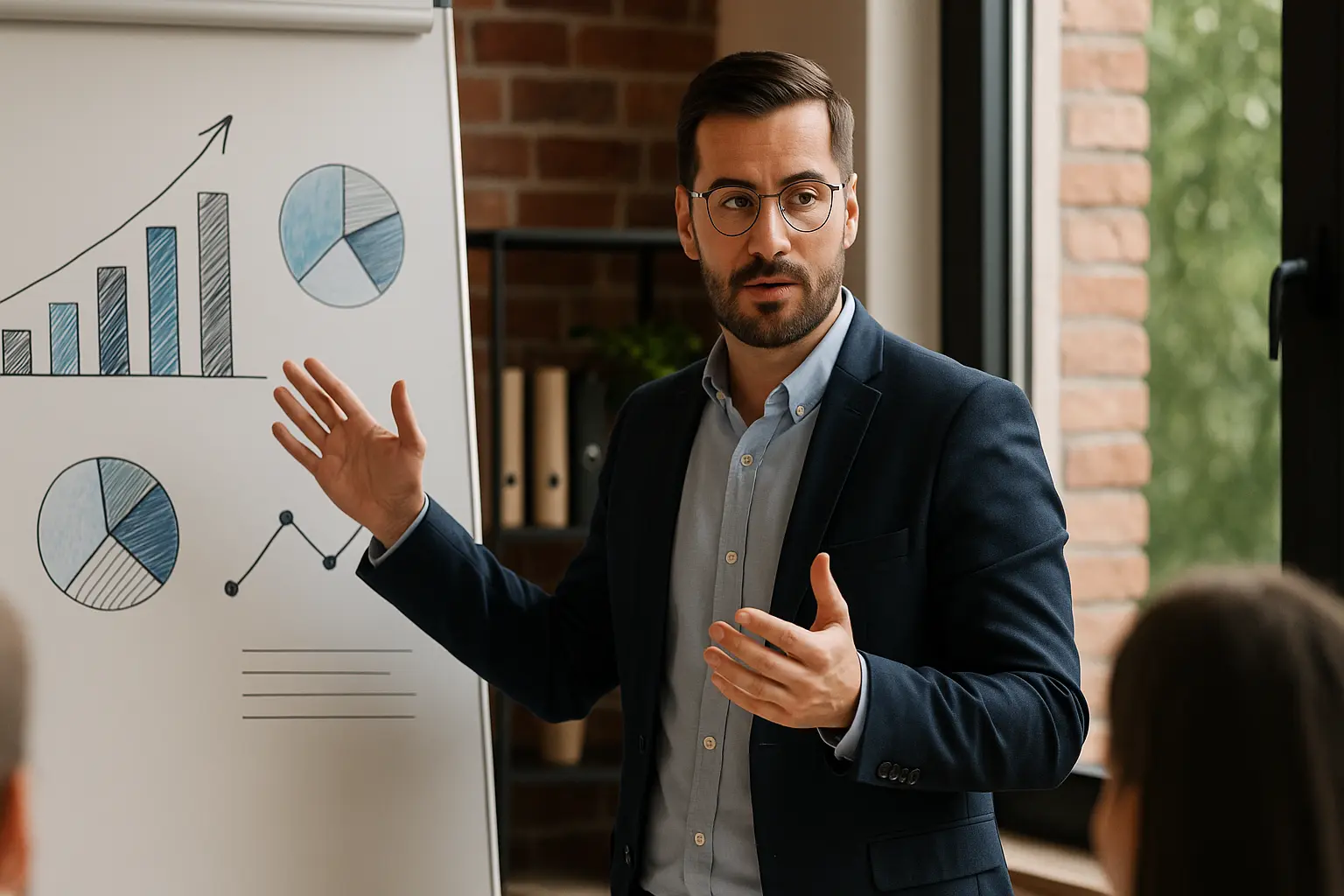Un « incontournable » de la vie de nombreuses entreprises qui revient chaque année, et auquel elles consacrent souvent d’importants moyens en vue d’en faire un moment marquant et « réussi » (à grand renfort d’hôtel de charme, de destinations d’exception et d’activités team building originales et ludiques). Cette débauche de moyens trouve son sens dans l’enjeu qui sous-tend cet événement : engager durablement les équipes dans la dynamique d’atteinte des objectifs commerciaux de l’entreprise. Mais elle est loin d’être un gage de réussite !
Depuis 10 ans, KESTIO intervient régulièrement en Ingénierie de séminaire commercial. Nous vous livrons ici 5 clés essentielles à la réussite de vos séminaires commerciaux, issues de cette longue expérience.
1) L’objectif visé par le séminaire est plus important que l’effet « waouh ! »
Soyons clairs. Pour une entreprise, plus les moyens alloués au séminaire commercial sont importants, et plus il y a de chance de trouver un lieu qui fera plaisir aux participants, ou une activité qui marque les esprits. C’est ce que l’on appelle l’effet « Waouh » : un marquage émotionnel positif, qui peut rester dans les esprits et apporter une expérience forte aux collaborateurs. Mais ce marqueur positif ne doit pas être le seul objectif d’un séminaire commercial. L’effet “Waouh” est ponctuel. Que va-t-il rester du séminaire dans 1 mois, 2 mois ou 3 mois après événement ?
Il faut allier l’effet « Waouh » à une vraie stratégie pensée en amont, et définir ce que ce séminaire doit laisser comme trace.
Si les collaborateurs ne se souviennent que du buffet et de la décoration sublime, mais pas vraiment des techniques commerciales enseignées, c’est l’échec. Il faut donc arrêter de privilégier la forme et s’intéresser aussi au fond. L’objectif visé par un séminaire commercial doit devenir la première préoccupation de la direction en charge de l’événement. Le choix du lieu viendra ensuite.
2) Chaque séminaire a (en réalité) un objectif différent
Le séminaire commercial de l’année dernière était un franc succès. Bonne écoute, bons retours, lieu plébiscité par les participants. Surtout, on ne change rien. Malheureusement, beaucoup d’entreprises ont ce réflexe de se mettre en « pilotage automatique ». On réplique le succès passé, on minimise la prise de risque. Erreur. Chaque séminaire est différent. Certes, il peut se dérouler dans le même lieu. Mais il possède nécessairement un objectif différent. A chaque fois, il faut donc se reposer la question de l’objectif véritable de ce séminaire.
Quel changement souhaitez-vous insuffler dans l’entreprise ? Quel message fort véhiculer ? Quelles nouvelles techniques transmettre ? Que voulez-vous réellement obtenir à la suite du séminaire ?
Trop occupées à répéter le succès du séminaire commercial de l’année passée, de nombreuses entreprises n’anticipent pas l’avenir et mettent du temps à changer, à évoluer. Ce phénomène a été très clair en 2008 et 2009 notamment en plein cœur de la crise. Plutôt que de rassurer les équipes commerciales, travailler sur les peurs, la confiance en soi et l’avenir, beaucoup d’entre elles ont choisi de marteler un discours institutionnel bien maîtrisé… un exercice malheureusement vain, si l’attente sous-jacente des salariés est en réalité d’être accompagnés et écoutés. La phase de définition de l’objectif d’un séminaire commercial ne doit donc pas être balayée d’un revers de la main, elle doit au contraire concentrer toute la réflexion et est en fait le point déterminant.
Découvrez les webinars KESTIO, on y aborde
tous les sujets liés à la performance commerciale avec nos experts :
Fabien Comtet, CEO
Dominique Seguin, DG
Nicolas Boissard, Directeur Marketing
3) Un séminaire doit être rythmé de manière précise
Trop d’entreprises ont pris la mauvaise habitude, par souci de simplification, d’organiser leurs rencontres commerciales avec une structure en silos. En clair : le matin, c’est conférence en salle plénière avec 80 slides sur écran géant, et l’après-midi, c’est karting ! Ce séquençage entre moments sérieux et moments de relâche est à éviter, car contre-productif. On recrée des mécanismes inconscients déjà vécus à l’école… Il y a les moments en classe pour apprendre et être sérieux, et des moments en cours de récréation qui permettent de se défouler, mais sont considérés comme “inutiles” au regard de l’objectif final.
Il est possible de créer de l’interaction et du fun tout en passant des messages sérieux. Il est recommandé notamment d’organiser des temps de co-construction avec les participants. Si ils sont impliqués, ils appliqueront la suite du séminaire avec conviction.
Il existe toujours des soirées « off » ou des temps de distraction, qui permettent de lâcher prise et ne sont évidemment pas à bannir, mais attention à l’organisation trop catégorique qui va rendre les périodes sérieuses pénibles à suivre en mode descendant avec des participants ayant en arrière pensée « Vivement ce soir… »…! Le fun oui, mais avec un objectif ! Le karting, le paintball ou le laser-game, pourquoi pas, mais avec un objectif, pour servir un propos. Assurez-vous que le message véhiculé est cohérent avec le thème du séminaire, demandez-vous quels ponts symboliques ou pratiques peuvent être réalisés.
4) Un bon séminaire doit intégrer le digital
La révolution du digital doit s’inviter dans les séminaires commerciaux pour en faire des rendez-vous encore plus agréables, productifs et durables. Partez du principe que si une matière est produite, elle aura de la valeur uniquement si elle est numérisée. Les idées jetées sur un paperboard, les discussions en salle, tout peut être numérisé aujourd’hui avec des outils simples de co-création et de partage. Il ne faut pas laisser cette créativité et ces échanges sans lendemain.
Le séminaire est une source d’information, de réflexion. Le digital aide à capter ces éléments.
Le digital est aussi un outil qui permet de préparer un séminaire commercial en amont. Dans la même logique que pour une formation de qualité, il est possible d’envoyer des éléments avant une réunion pour que les participants en prennent connaissance au préalable. Le jour J, ils auront déjà une base de connaissance et ne découvriront pas le sujet, ce qui améliorera la rétention de l’information, la qualité de la participation et l’efficacité des échanges. Pour qu’une information soit retenue, elle doit être communiquée 3 fois. Alors autant faire passer les messages clés avant le séminaire, les répéter pendant, et les rappeler ensuite.
5) Votre séminaire commercial doit être cohérent
Attention au manque de cohérence entre séminaire organisé dans un cadre prestigieux et coupe dans les budgets pour plusieurs services de l’entreprise dans le même mois ! Il n’est pas possible de tenir un discours orienté sur la rationalisation des coûts à longueur d’année pour « craquer » avec un séminaire très haut de gamme. De la cohérence !
Le séminaire doit s’intégrer dans un processus continu et apporter du sens pour la stratégie d’entreprise. Il doit aussi s’intégrer dans la logique financière de la société.
Il est possible d’alterner les lieux, les animations, et de faire varier les moyens alloués en fonction de la santé de l’entreprise, mais aussi et surtout en fonction des objectifs visés par le séminaire commercial. Un événement peut très bien se dérouler dans un château privatisé, tandis que pour la seconde rencontre de l’année 6 mois plus tard, rien n’interdit d’aménager les bureaux pour les vivre différemment et y apporter plus de fun le temps d’un séminaire efficace.
Vous souhaitez optimiser le temps de vos commerciaux? Grâce à ce webinar, apprenez comment travailler son ciblage et utiliser des outils adaptés afin de multiplier par 2 votre nombre de rdv commerciaux par mois:
Depuis 10 ans, KESTIO accompagne des entreprises – de la PME au Grand Groupe – dans la préparation et l’animation de leurs séminaires commerciaux :
- Ingénierie du séminaire : définition des objectifs et du contenu, élaboration du programme, aide au choix du lieu et des thèmes, propositions d’animations…
- Création des supports d’animation : définition des messages clés, conception et design de présentations originales et efficaces, création de quizz et jeux “intelligents” participatifs
- Animation de tout ou partie du séminaire commercial : communication des messages stratégiques, animation de worshops et de jeux particpatifs, formations commerciales en mode challenge





